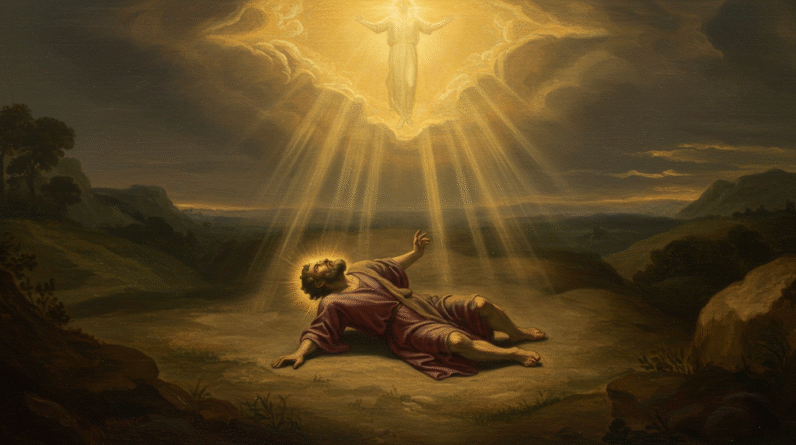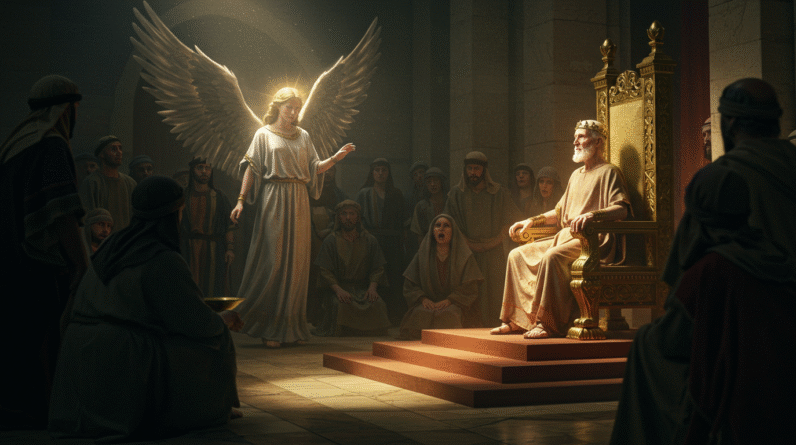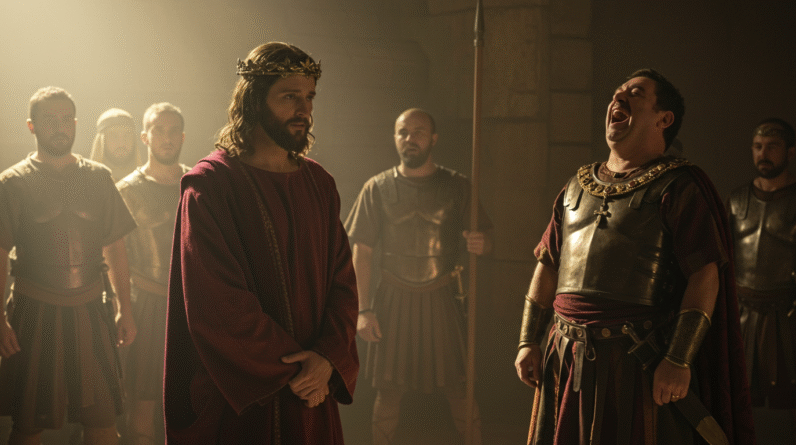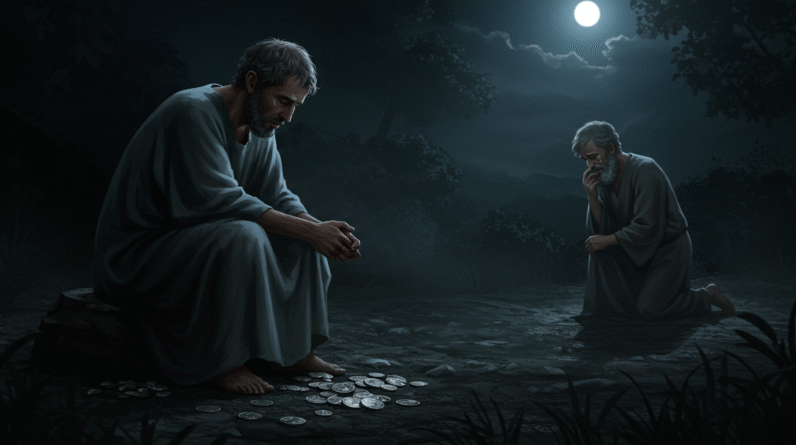Explore the story of Jeroboam, a king whose defiance against divine will reshaped Israel’s history. Discover his motivations, rebellion, and lasting impact.
Jeroboam – The Enemy of God in the Old Testament

Introduction
Have you ever wondered what leads someone to stand in opposition to divine will? This is the gripping story of Jeroboam, a significant figure in the Old Testament, infamous for his antagonism towards God. As a king, Jeroboam’s rebellion altered the course of history and left a lasting imprint on the narrative of Israel. In this article, you’ll explore his identity, his motivations for opposing God, and the impact of his choices. The story of Jeroboam serves as a cautionary tale—a complex portrait of power, pride, and its inevitably dire consequences.
Who Was Jeroboam?
Jeroboam began his life as an ordinary Israelite, yet he rose to substantial power and infamy as a king. He was the son of Nebat, from the tribe of Ephraim, and originally caught King Solomon’s eye for his industrious nature (1 Kings 11:28). His potential saw him appointed as a leader over a workforce during Solomon’s reign. However, it wasn’t long before prophecy and circumstance converged to alter his destiny. After Solomon’s oppressive reign, it was Jeroboam who would defy the heir, Rehoboam, and catalyze the split of the united monarchy. Jeroboam’s rise to power places him in a pivotal position within the Old Testament narratives, especially concerning the division of the unified Israel into two kingdoms.
Jeroboam’s Opposition to God
Jeroboam’s opposition to God primarily stemmed from political motivations. When Solomon’s rule ended and his son Rehoboam ascended, Jeroboam saw an opportunity. A prophecy from Ahijah the Shilonite foretold that Jeroboam would rule over ten tribes (1 Kings 11:31). However, fear drove him to consolidate his power through idolatry and false worship, leading Israel away from the worship of Yahweh. In a strategic move to secure his kingdom politically, Jeroboam constructed two golden calves and declared them as the gods that had led Israel out of Egypt (1 Kings 12:28). This act was a direct defiance of the Mosaic Law, causing Israel to sin gravely by adopting these idols. The establishment of alternative centers of worship in Bethel and Dan was pivotal in his opposition, showcasing Jeroboam’s focus on preserving his power over preserving divine command.
The Consequences of Their Opposition
The repercussions of Jeroboam’s decisions were severe, both for himself and the northern kingdom of Israel. His actions prompted divine displeasure, as they entrenched idolatry as a norm in Israel, affecting subsequent generations. God delivered a clear judgment upon Jeroboam’s house through Ahijah, foretelling the obliteration of his dynasty (1 Kings 14:10). Ultimately, Jeroboam’s legacy persisted as a cautionary tale; the “sins of Jeroboam” became emblematic of the downfall of future kings of Israel. His story offers biblical teaching on the accountability of leadership and the importance of worshipping God without diversion. The narrative reinforces that turning away from divine mandates to pursue personal or political gains leads to destruction.
Jeroboam in the Larger Biblical Narrative
In the broader biblical narrative, Jeroboam’s story is interwoven with other key figures, engaging in a complex interplay of politics and spirituality. His influence indirectly paved a path for rulers like Ahab and for figures such as Jezebel, who propagated idolatry further. Jeroboam’s actions influenced the spiritual decline that would drag Israel toward eventual captivity. In God’s overarching redemptive plan, Jeroboam’s reign is pivotal; it lays bare the necessity for faithfulness and the consequences of spiritual defection. Despite Jeroboam’s rebellion, God’s promises to the House of David endured, signifying an unyielding divine plan for redemption and restoration.
Lessons We Can Learn from Jeroboam
Reflecting upon Jeroboam’s life unveils profound insights and warnings for modern readers. Primarily, it presents a stark exposition of the dangers inherent in prioritizing political power over spiritual fidelity. Jeroboam’s reliance on idols reveals a fundamental lesson on the destructiveness of idolatry—whether tangible or abstract. The narrative warns against the allure of quick fixes that veer away from principled living. As you navigate your spiritual journey, Jeroboam’s story serves as a reminder to remain steadfast in faith and cautious of decisions that may estrange you from God. Learning from his errors can guide you to prioritize divine principles over temporal gains and to anchor your life in faithfulness and integrity.
Conclusion
Jeroboam remains a notorious figure within the tapestry of the Old Testament—a king marked by disobedience, fear, and the consequential decline of a nation. His key actions of introducing idolatry and disrupting traditional worship underscore the peril of opposing divine command. As you ponder his story, consider the impact of your choices and the precedence of aligning your actions with God’s will. Let Jeroboam’s legacy prompt you to seek authentic worship and to live a life grounded in unwavering spiritual fidelity.
Acknowledgment: All Bible verses referenced in this article were accessed via Bible Gateway (or Bible Hub).







